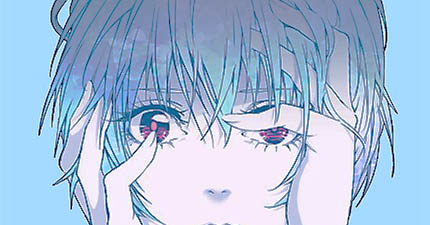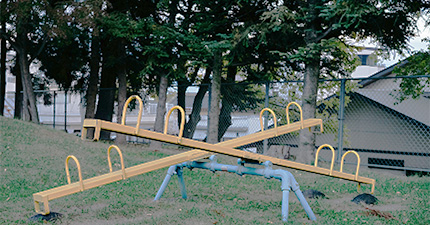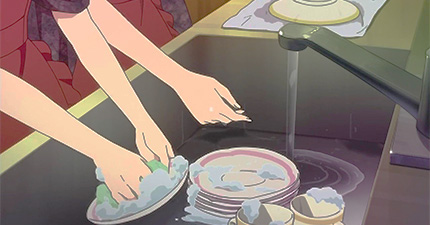Spirited Away by Hayao Miyazaki is a very dark fairy tale. It’s dark. Very dark. It’s set in an old gold town called Jiufen located in Taiwan but relatable to kids in any former gold town from Melbourne to San Francisco. Set in Jiufen, Spirited Away tells the story of indentured servitude.
Chihiro, a ten year old girl, and her parents take a wrong turn when moving to a new place. They get trapped in a spirit world when Chihiro’s parents start to eat random food that they find in a stall. The parents turn into pigs and Chihiro must find a job at a bathhouse or else she will disappear. That’s why Chihiro ends up signing a contract with Yubaba, losing her name and identity.
The young river spirit, Haku, helps Chihiro. The old river spirit who comes in for a bath helps her. Kamaji, a Tsuchigumo who represents the miners working the coal veins, helps her. A radish spirit helps her and so does Zenbaba, the Russian sorcerer living in the swamp. But no character helps Chihiro as reliably and consistently as the person who stays with her during her entire contract. That character is Lin.
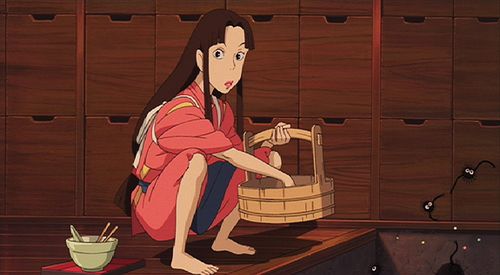
Like Chihiro, Lin is also an indentured worker. She’s older, an adult woman. We first meet Lin when Chihiro is asking Kamaji for a job. He doesn’t want to give her one. Lin appears to feed Kamaji and the soot beings. She takes Chihiro up to Yubaba to ask for work. After Chihiro is employed, Lin teaches her the ropes. She clothes her, gives her a bed, and feeds her. Chihiro doesn’t like to eat because she saw her parents turn into pigs due to eating. Throughout the entire movie, we only see her eat the pomegranate seed that Haku offers her, two rice balls from Haku, and a bun from Lin. Chihiro only accepts food from those she trusts.
Spirited Away is a movie for kids and doesn’t really get into this but Chihiro’s storyline very closely resembles the children of miners. These children ended up in the red light districts working in brothels and bathhouses after their parents got too sick to work. Yubaba’s name simply means Bath Witch but her sister, Zenita, is called Money Witch. Money Witch is what madams at brothels were called.
Who is Lin? The bathhouse in Spirited Away isn’t set in our world but in the spirit world. It’s not contemporary day Jiufen but the spirits that linger in the old gold town. Lin is a tiger spirit. Tigers symbolize ferocity. They are marked by aggression or the ferocity at having experienced some form of injustice. As a tiger spirit, Lin is extremely sensitive to injustice. She’s constantly complaining about workplace harassment and standing up for herself.
Jiufen is a real place. It is located near the shore in Taiwan. You can go. I’ve gone before. There was a gold rush, which Miyazaki alludes to when Noh Face makes the bathhouse go into a frenzy by creating more and more gold. The same people who were panning for gold in San Francisco and Melbourne brought their technologies to pan for gold in Jiufen. Under Japanese rule, the rules changed and larger scale industrial mining started. The river spirits in Spirited Away allude to industrialization. The old river spirit who comes for a bath is extremely polluted and has to be cleaned. Haku, a river spirit by the real name of Kohaku, has forgotten his name because he was filled in and paved over.
Real people are buried there. Real people were dehumanized like Chihiro’s parents were. Real people were sent to work the bathhouses and brothels. Real gold came from the river, real coal and soot too. And just like in the American west, real workers built a real railroad.
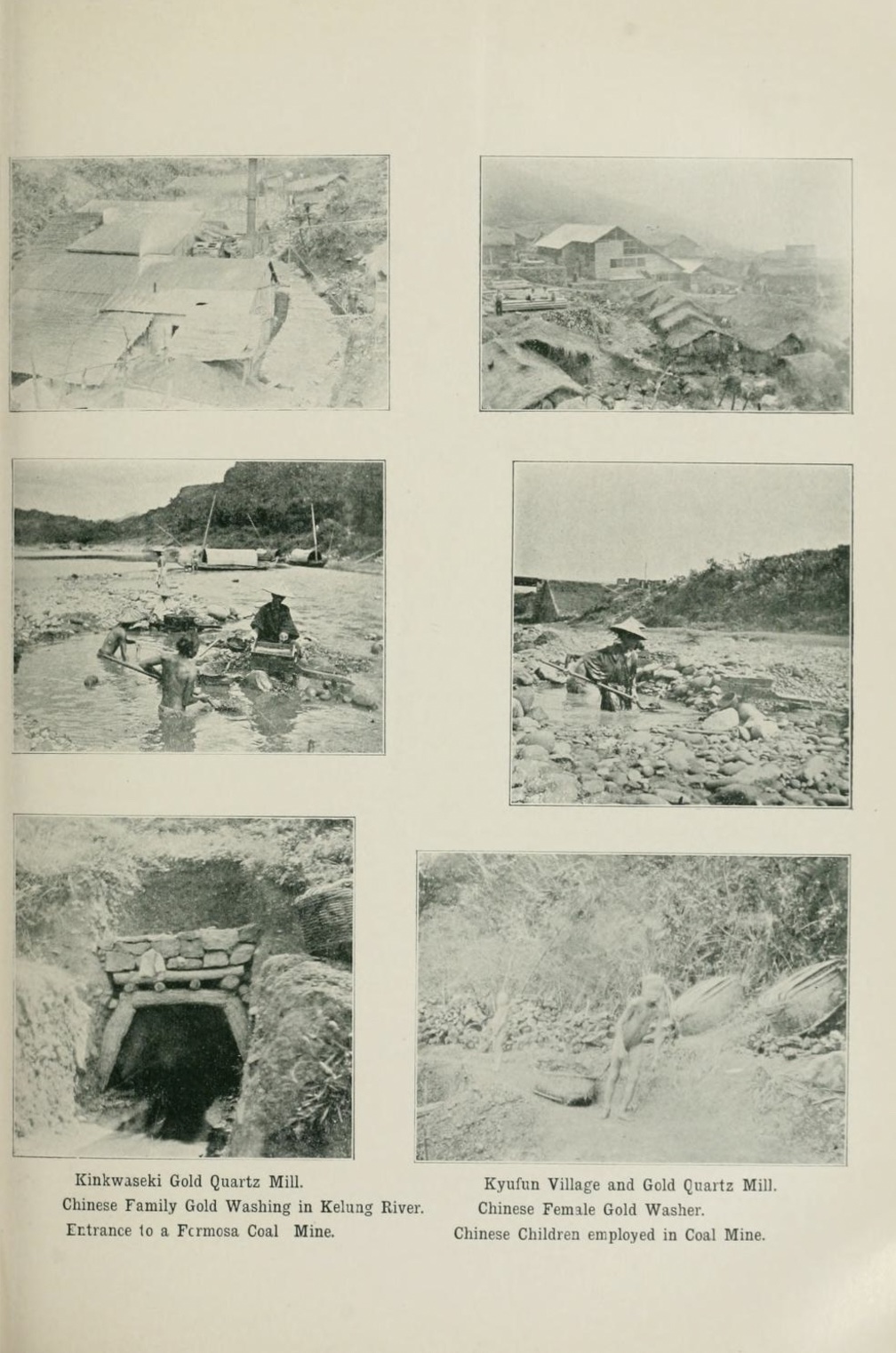
Spirited Away is about how capitalism turns our needs into greed. Chihiro’s parents turn into pigs because they are dehumanized by their own need to eat. The workers at the bathhouse get eaten up by Noh Face because their conditions have made them ravenous for gold. Noh Face, representing a deep emptiness of self, gets adopted by Zenita towards the end of the movie because she, being the Money Witch, knows how to make her greed work for her. She literally puts Noh Face to work.
But Spirited Away is about more than just greed. Spirited Away is about injustice. Haku was filled in and paved over, forgotten about. Chihiro lost her parents to industry. All of the workers at the bathhouse are also trapped there. They literally can’t leave. When Lin shares the bun with Chihiro, she tells Chihiro that her dream is to save up enough money to buy a train ticket so that she can leave.
Lin is a tiger spirit. She embodies the spirit of fighting back under injustice. What happened to Lin during her lifetime?
Out of all of the spirits, Lin has the most human appearance. A lot of fans of Spirited Away assume that Lin is actually a human spirit who got trapped at the bathhouse just like Chihiro. Here’s a detail to support that theory—when they clean the old river spirit in the bath, Lin ties a hangman’s knot to the bicycle handle so that they can pull the garbage out of him. A lot of folktales from the 1800s tell stories about hanging female spirits. Those are the spirits of women who committed suicide.
Chihiro wouldn’t be able to survive without Lin. Other characters come in and out of Chihiro’s daily routine. Lin sticks by. She thinks about Chihiro’s every meal. She never asks Chihiro to work too hard. When they are assigned the nastiest and biggest jobs, Lin is sensitive to the injustice. “They’re harassing us!” she exclaims so that Chihiro is aware that the difficulty of their task isn’t evidence of personal insufficiency but is merely a side effect of ritual hazing.
When Chihiro leaves the bathhouse to go on the train, Lin makes a huge personal sacrifice for her.
Lin’s dream is to save up enough money to buy a train ticket so that she can leave the bathhouse. She doesn’t seem particularly rooted to Jiufen. She feels trapped and she wants to go. However, when Kamaji reveals that he has two train tickets to leave, Lin doesn’t ask for one. Chihiro could have taken Lin. Instead, she took Noh Face. Lin even gave Chihiro a ride on a boat to the train station but she didn’t ask for a ticket. She knew that, if she asked, Chihiro would give her the ticket meant for her.
I think that Miyazaki did this on purpose. There’s no way that he would have told us about Lin’s dream of leaving on the train and then shown us her giving Chihiro a ride to the train station without meaning something there. I can hear Lin rationalizing it all in her head even. “The kid needed the ticket while I have time to save up. It wasn’t my ticket in the first place. It’s not like I lost anything.”
When Kamaji gives Chihiro the train tickets, he tells Lin that it’s for something “she will never understand—love.”
This was a cruel thing to say. Lin is a tiger spirit. She is sensitive to injustice, to her own and to Chihiro’s. However, she is the one who is always running around taking care of and feeding those who forget to eat. She is the one to watch over Chihiro and the one to paddle her over to the train station. And she doesn’t even ask for a ticket. Lin is someone who has suffered through great injustices. It is evident in her behavior and in how she treats herself. She reminds Chihiro, Kamaji, and the soot creatures to eat but we rarely see her eat on her own.
How could Kamaji tell Lin that she doesn’t understand love?
Ultimately, Lin is a tragic figure. She doesn’t get to leave the bathhouse. Miyazaki said that he made Spirited Away because he wanted to make a heroine who learns to cherish what she has instead of acquiring or growing more. In a way, Lin is a warning. As viewers, we don’t want Chihiro to end up like Lin who is trapped at the bathhouse forever.
A lot of people say that Spirited Away offers us a moral lesson about generosity instead of greed. Sure, Chihiro is giving. She gives away a valuable train ticket to Noh Face. She refuses the gold. She helps Yubaba’s baby and Haku. She returns Zenita’s seal. At the end of the movie, she gets to return to her family to live in Jiufen on top of the histories that she walked through during her time in the spirit world. But it wasn’t just Chihiro’s own generosity that helped her escape. It was also Lin’s generosity and sacrifice. Lin got saddled with a kid and she made the effort to make sure that the kid did well and got to the train station.
I don’t think that Spirited Away is a moral lesson about what kinds of choices one could possibly make. If it was, that the character Lin wouldn’t appear. When a person needs food, they don’t get to choose otherwise even when the only food available is available through indentured servitude or capitalism. Likewise, people also don’t get to choose our sacrifices. Lin gets assigned to teach Chihiro the ropes. She doesn’t have a choice. She doesn’t get a train ticket. That also wasn’t an active choice she made. It was just how things went.
The reason why Spirited Away is so good is because it cuts into what we typically expect from fairy tales. We expect fairy tales to deliver moral lessons. Spirited Away doesn’t. Spirited Away is about indentured servitude and settler colonialism. Even spirits need money and no one gets to choose how generous or greedy they are. They are trapped in their generosity and in their greed. We expect fairy tales to tell a story about a particular culture and how that culture arose. Spirited Away is about an old gold town. It’s not about a story about some ancient culture. It’s about the spirits trapped by industrialization and the movements of people and materials. Even the spirits are unrooted and want to leave. Even the spirits are trapped.
Yes, Lin wants Noh Face’s gold. She doesn’t have a choice. Yes, she helps Chihiro and makes sacrifices for her. Lin doesn’t have a choice about that either. In a lot of Miyazaki movies, characters seldom move the plot along. They may try to do a lot of actions but their actions usually don’t pay off and the plot moves along regardless of what people do. Lin never really acts according to her own choice but she does take action and her actions are part of the world itself. The movements that we see, of gold and people and work, are also the movements of a gold town as a spirit world.
We actually don’t see Lin again after Chihiro comes back from visiting Zenita. Lin bid farewell to Chihiro at the train station. That’s the last time we see her. That’s where her story ended. She appeared to tell us about her dreams and how she sacrificed those dreams and then she disappeared. That’s what makes Lin such a harrowing figure.
